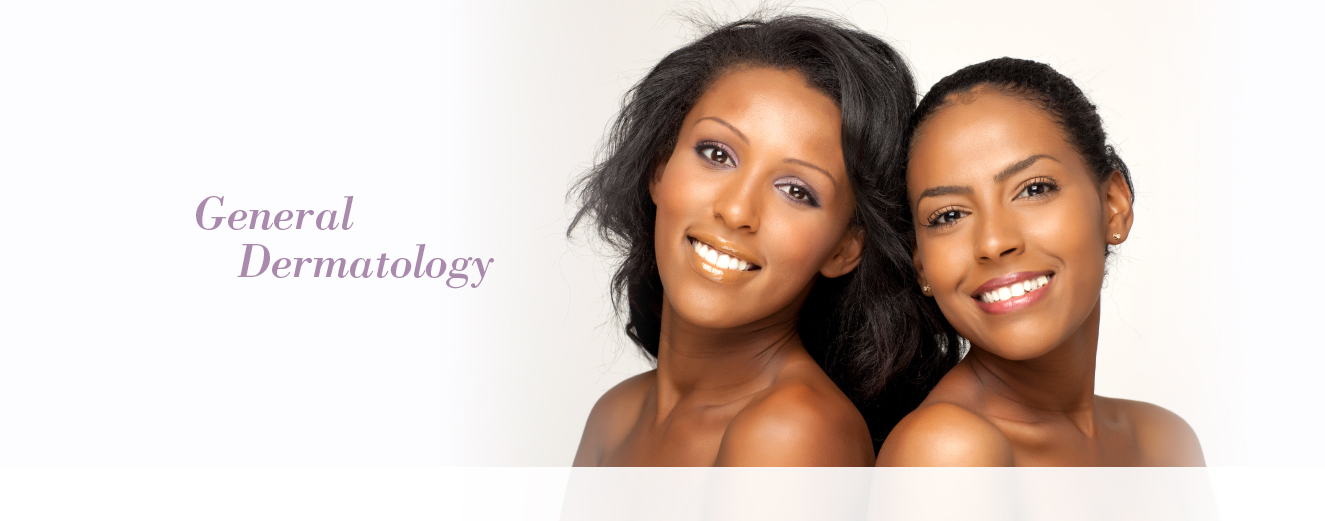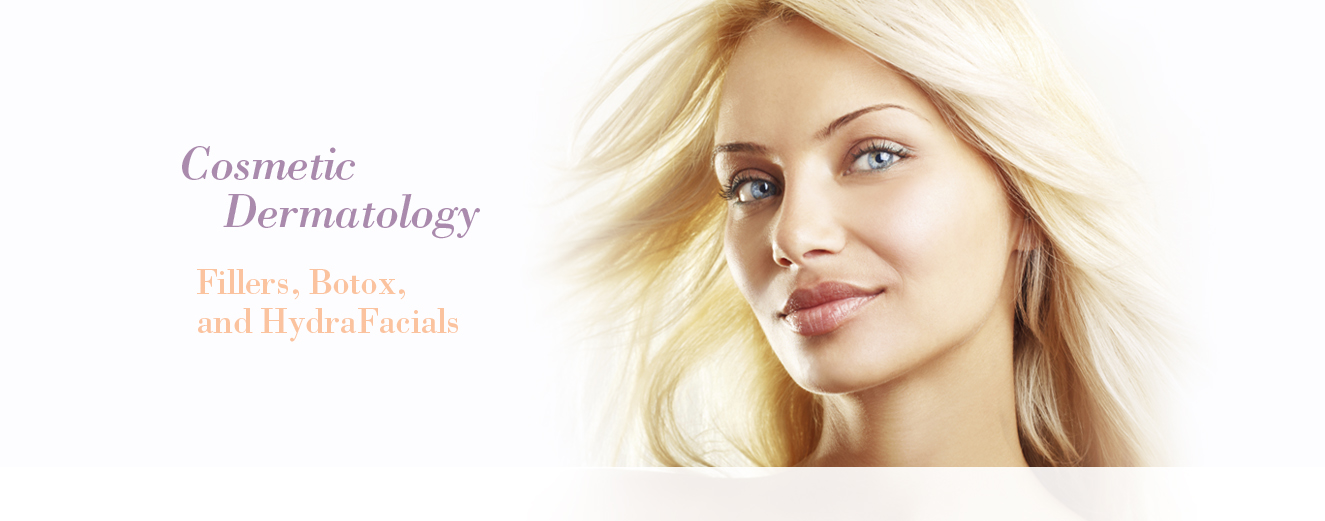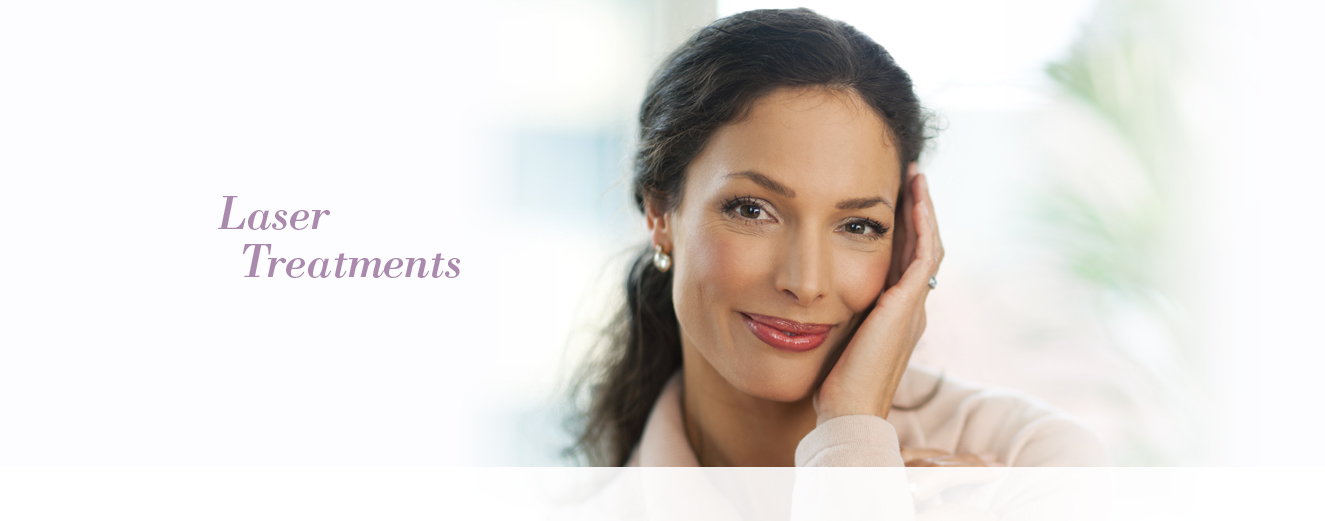Laser Treatments
Laser Skin Rejuvenation
As we age, our skin begins to change as a result of several different lifestyle factors. The natural collagen within the skin begins to diminish and skin may sag and droop. Smoking, alcohol consumption, sun exposure, nutrition and more can also lead to the development of wrinkles and fine lines within the skin. Other skin conditions such as acne, brown spots and chicken pox can leave unattractive blemishes on the skin.
Laser skin resurfacing is a minimally invasive cosmetic procedure used to reduce the appearance of wrinkles, fine lines and other skin irregularities. It offers patients many advantages over traditional resurfacing procedures such as chemical peels and microdermabrasion, as it practically eliminates side effects such as discomfort, bleeding and bruising.
Although laser skin resurfacing uses the same basic principles of other procedures and treats aging, damaged skin by removing a layer of skin, it does so through a noninvasive approach that uses laser energy to remove as much skin as needed. This allows for a much deeper removal through more precise and less invasive techniques.
Laser skin resurfacing can be used to treat:
- Wrinkles
- Sun damage
- Crow's feet
- Brown spots
- Blotchiness
- Precancerous growths
- Acne
- Chicken pox scars
- Superficial facial scars
While this procedure is most commonly performed to treat the effects of aging, it can be performed on patients of any age who are looking to restore their skin to a smooth, clear complexion free of blemishes and other imperfections.
Procedure
Laser skin resurfacing is commonly performed with either a carbon dioxide (CO2) or an erbium laser. Although the process for these procedures is very similar, the erbium laser is typically used to treat deeper lines and wrinkles within the face, hands, neck and chest. It is also better for darker skin tones. Your doctor will determine which laser is best for you after evaluating the condition of your skin and your medical history, while also considering your desired results.
During the laser skin resurfacing procedure, the laser energy is used to remove layers of damaged skin to leave the treated area smoother and more even through short pulsed light energy that is precisely delivered to the area. The laser is moved over the targeted area multiple times until imperfections are no longer visible and a smooth layer of skin is left. The laser energy causes minimal heat damage to the surrounding structures.
This procedure is performed on an outpatient basis and uses local anesthesia to help minimize discomfort. The entire procedure can take anywhere from 30 minute to two hours to perform, depending on the size and condition of the treated area. Some patients may require more than one procedure in order to achieve their desired results.
Recovery and Results
After the laser skin resurfacing procedure, patients may experience mild swelling and discomfort for a few days. These symptoms can be controlled with ice packs and medication prescribed by your doctor. Patients will also experience redness that gradually diminishes as the skin heals. While most patients can return to work and other normal activities after a few days, redness may persist for several weeks.
The results of laser skin resurfacing may take months to fully appear, after all signs of redness have diminished. Although the results are long-lasting, they are not permanent. The skin will still be subjected to the natural effects of aging, although your skin will appear younger and smoother than if you had never had any treatment at all.
Risks
Although laser skin resurfacing is considered safe for most patients, there are certain risks associated with any type of procedure. Some of these risks may include scarring, infection, abnormal healing, allergic reactions or skin pigmentation. However, these risks are considered rare, and most patients undergo these procedures with no major complications.










